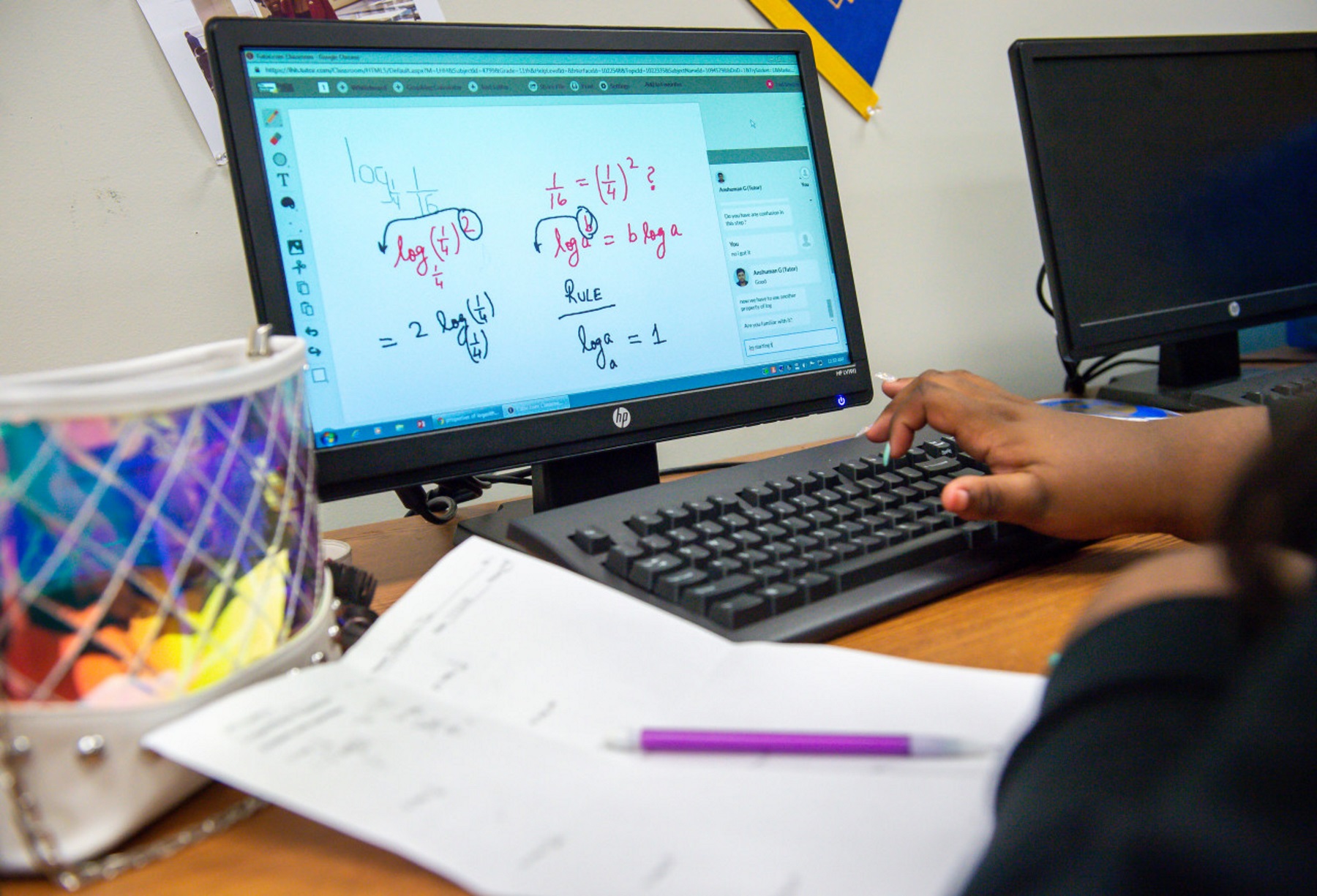In Schools: New Research Shows Link Between Screen Time And Test Scores

New research from the Reboot Foundation shows a connection between extensive screen time in school and test scores.
Bita Honarvar / For WABE
School districts invest millions of dollars each year in technology. But new research shows extended use of technology in schools may have a negative connection to student achievement.
An analysis from the Reboot Foundation, an education nonprofit, examines the relationship between test scores and in-school screen time. The report analyzed scores from an international test called the Program for International Student Assessment (PISA) and a U.S. assessment, the National Assessment for Educational Progress (NAEP), and compared them to the amount of time students spent online at school.
“What is consistent [between results on both tests], first and foremost, is that there is actually a negative relationship between the extensive use of technology and actual scores and results,” says Helen Lee Bouygues, president of the Reboot Foundation and author of the study.
Simply put, the analysis found a link between computer use during the school day and scores on the two tests. Generally, students who spent less time online tended to have better scores.
In Georgia, the study found fourth graders who spent less than 30 minutes every day on the internet for reading scored an average of 8 points higher on reading tests than students who spent about an hour online for reading.
The discrepancy grew as screen time increased. The students who spent less than half an hour each day online for reading scored an average of 18 points higher on reading tests than students who spent more than two hours online for reading.
The foundation says that while the research controlled for outside variables like wealth and prior performance, the results don’t provide causal evidence.
The analysis concludes that schools should limit computer use, especially for younger students who are still learning the fundamentals of reading and writing.
Bouygues says to make sure they’re using technology effectively, schools need to change conversations they’re having around it.
“There’s a lot of talk and dollars about hardware,” she says. “’Do we buy tablets? Do we buy computers? What’s the right form of equipment that we buy?’ When in reality, I think what we need to focus on is more equipping teachers with the … applications [that are] age-appropriate.”
She says giving teachers the autonomy to choose the tools they use could help them teach specific skills more efficiently.








